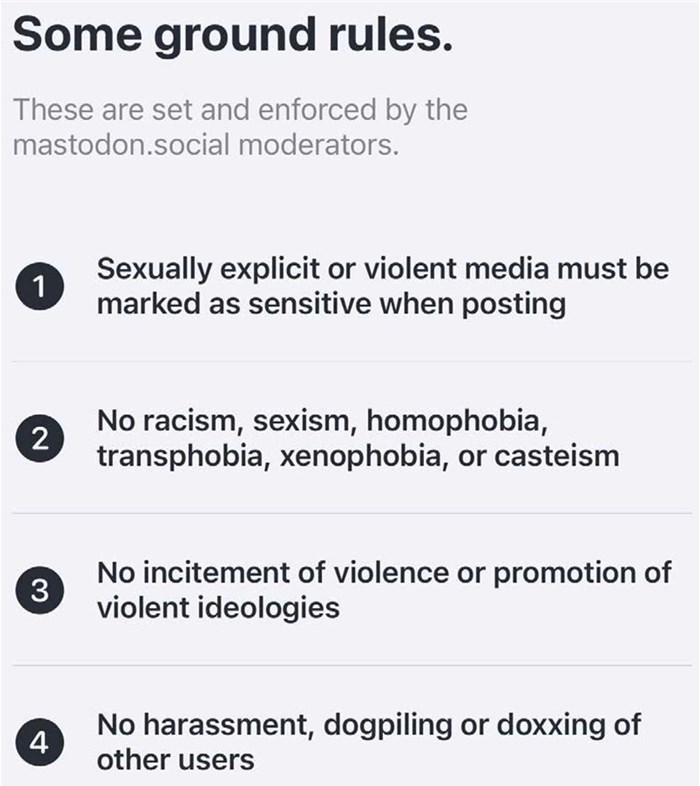The world remains uncertain, and businesses must adapt to new and unpredictable economic, geopolitical and environmental realities. Against this backdrop, it's important to pay attention to the new (and renewed) challengers emerging and primed to disrupt categories in 2023. These companies are finding opportunities in the uncertainty, breaking with expectations, and not just meeting the needs of a fast-changing world but shaping its future.
In the 10th instalment of our annual ‘Challengers to Watch’ feature, we identify 20 rising companies from around the world and explore the broader trends, opportunities and threats to the status quo they represent.
Our roundup covers an expansive range of categories, markets and geographies, but all these companies share a firm rejection of ‘best practice’ and an understanding of the imperative to make their own rules.
Mastodon – for decentralised social media
Since the world’s richest man (and worst tweeter) took over, fired half of the staff, and through paid verification created the least brand-safe environment one could hope for (to hilarious effect unless you’re a shareholder in Eli Lilly), Twitter has reeled from one shock to the next.
Elon’s quest to be a ‘Free Speech Absolutist’ (as long as the free speech isn’t about him or his jet) has brought back a once-banned user base to Twitter that could be charitably described as rowdy (and less charitably described as bunch of hooting *******s).
After most of [https://www.theverge.com/2022/11/17/23465274/hundreds-of-twitter-employees-resign-from-elon-musk-hardcore-deadline Twitter’s team decided not to be ‘extremely hardcore’]], the evening of the 17th November 2022 became somewhat of a premature farewell for the platform. Rumours swirled that the site would not be able to last the weekend, and people reported an uptick in abusive content and harassment. As users recounted their favourite moments on the site, one question rang out above all else… ‘Where is everyone going next?’
Social media is a flakey business, as anyone with a MySpace page can attest to. One minute you’re the best of the best, the next you’re the epitome of cringe. But Twitter’s longevity and format has helped it to become a staple of global conversation - a sense that it is the open channel for public conversation and information. Just think of how local governments use Twitter to update on road closures, storm warnings and snow days. It is a service that can’t be filled by other popular platforms like Instagram or TikTok due to their difference in format.
So into the gap seemingly left open by Twitter, several challengers are making their play for the right to be your next digital compulsion.
The most commonly mentioned of these is Mastodon, whose platform appears to be the most in keeping with the original vision of Twitter. Mastodon is not new - it has been around since 2016 - but has always been a champion of a decentralised approach to Social Media, rejecting the idea that there should be one single arbiter for the use of the platform, particularly if that arbiter is a Billionaire.
While Mastodon hasn’t changed strategies in the wake of Twitter’s turmoils, it has certainly benefited from the public attention. Not least after Elon engaged The Streisand Effect, and marked links to Mastodon as potentially harmful.
However, to keep with the tradition of decentralisation, Mastodon operates as a series of ‘servers’ with their own rules and entry requirements. While the platform works similarly to Twitter, its decentralisation might hamper its ability to be the hub of global conversation in the short term.
Gaining traction in the wake of the Twitter chaos, Post looks to be the one that is doing the heavy lifting in terms of seeking to establish authority and credibility. Founded by Noam Bardin, ex-CEO of Waze, Post is deliberately trying to capture ‘the spirit of early Twitter’. With a promise (or at least a founding vision) of Real People, Real News, Civil Conversations, Post has worked hard to convince some of Twitter’s most prominent journalists and opinion formers onto their pre-release platform.
Hive seems to be the app that many of the more artsy/nerdy (awesome) side of Twitter migrated to. Female owned and operated, Hive was touted as the nicest alternative to Twitter, and for a while, it certainly felt like that, with the fledgling network topping the App Store charts.
But in the weeks it took me to research this article, Hive seemed to have a meteoric rise, and then has almost entirely ceased to buzz, with accounts last sending out messages three weeks ago. It just goes to highlight the fickle nature of social media, and the difficulty of competing with a fully established network like Twitter.
What this all points to is one thing: we don’t know who is going to win in a post-Twitter world. It may even be Twitter 2.0.
But what is clear is that there is an opportunity for a challenger to swoop in and show what progress in social media really means, and 2023 might be the year in which we all kick our Twitter habits for good and pick up terrible new ones somewhere else.
















































